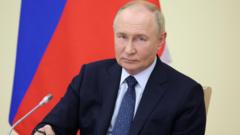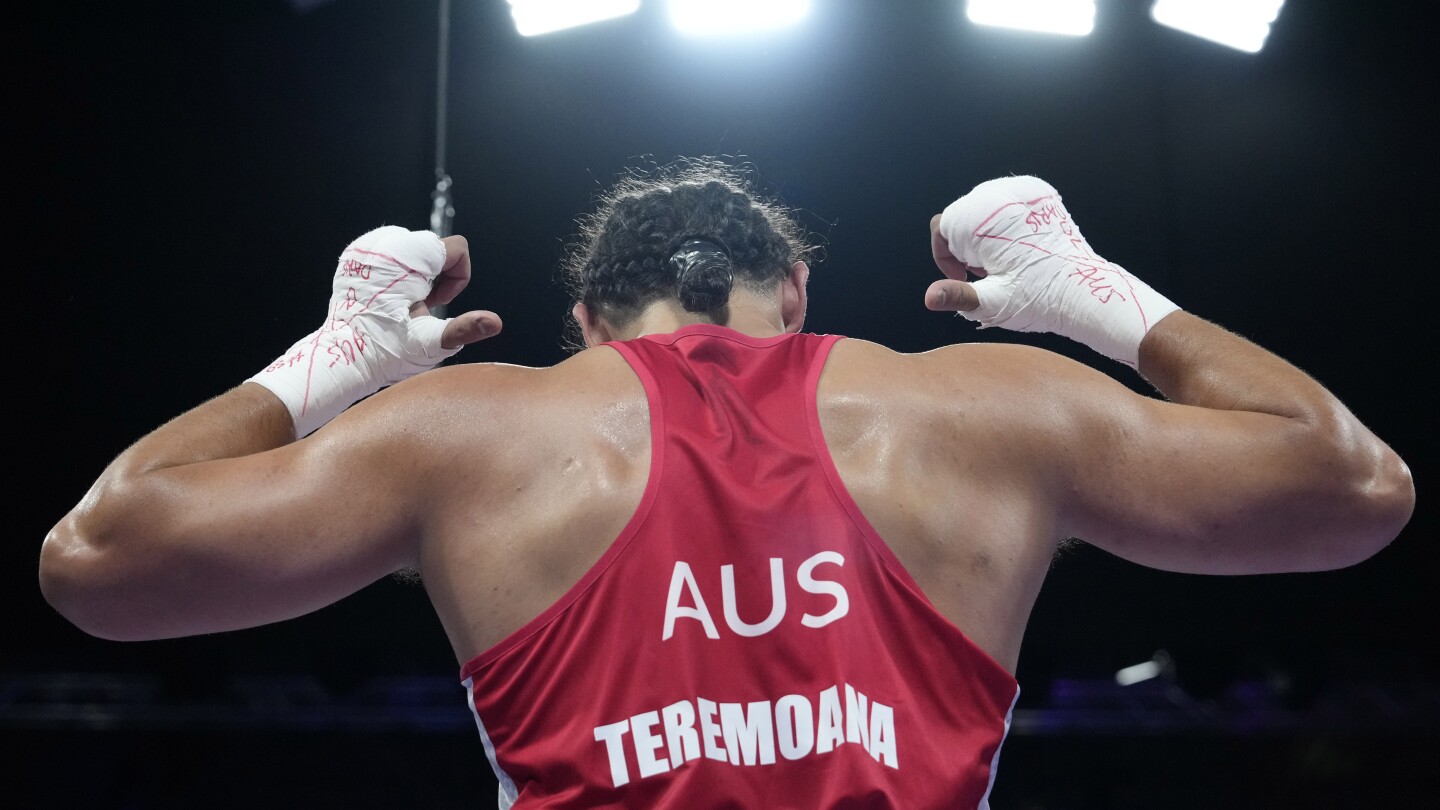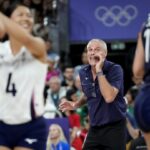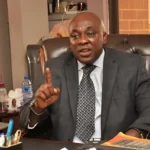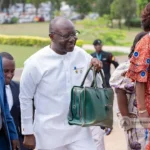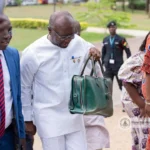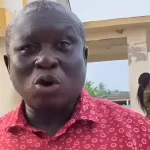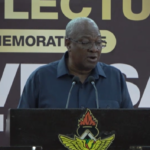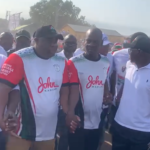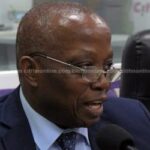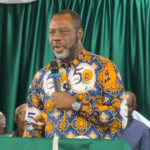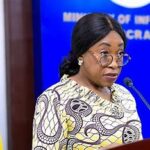By GREG BEACHAM
VILLEPINTE, France (AP) — The 12 fighters on the biggest Olympic boxing team in Australia’s history include two with Cook Islands heritage, a woman who fights in hijab, only two Olympic veterans and a 6-foot-6 super heavyweight who danced joyously in the ring after knocking out his first opponent.
The Aussies have the biggest boxing team at the entire Paris Games. They’ve endured some early setbacks, but these tight-knit pugilists are still challenging stereotypes and knocking down barriers on an Olympic journey toward what they hope will be the start of a new fighting era for their nation.
“What a diverse team, and what a beautiful representation of what Australia is,” bantamweight Tiana Echegaray said. “That’s what I love about boxing, and gyms in general. It doesn’t matter where you come from, your religion, your political stance, your sexuality. You just go to the gym, you train and focus on the work, and leave your ego at the door. That’s our team.”
The early results haven’t been perfect, as expected when newer fighters on the world stage reach the top level of the sport: The Aussies lost six of their first nine bouts in Paris, halving their team after five days.
They also recorded impressive wins by medal contenders Teremoana Teremoana, Caitlin Parker and Charlie Senior. And just sending a big team to Paris is an achievement in itself for Australia, which has never translated its national passion for combat sports into Olympic boxing gold.
Harry Garside’s bronze medal in Tokyo was Australia’s first boxing medal since 1988, and only the fifth in the nation’s history. Garside made it back to Paris, but was crushed after he lost Monday in the round of 16, feeling he let down his teammates and his nation — and his plaintive emotions underlined the closeness of this team.
“I love Australia to bits, mate,” Garside said. “I really envisioned myself winning that gold medal for Australia. I’m just a failure right now. I really thought I could do it. You shoot for the stars, right?”
Australia has a massive boxing team in Paris partly because of changes to the Olympic qualifying process, which was overseen by an IOC task force in the absence of a governing body.
The winners of the Pacific Games — a competition involving Australia, New Zealand and 22 other nations — were generously granted an automatic Olympic qualifying spot, and Australia steamrolled through 12 of the 13 weight classes.
Olympic boxing teams sometimes aren’t really teams, but mercenary collections of fighters who train largely on their own for this highly individual sport. Australia’s group has been tight since even before they all achieved qualification eight months ago, and they’ve traveled around the world together since, including a World Boxing tournament in Pueblo, Colorado.
“Every single one of us pushes each other, day in and day out in the gym,” flyweight Monique Suraci said. “They’re the best team to be around, the best environment. There’s a gold-medal mentality here.”
The most compelling prospect on the team is Teremoana, the budding professional who stuck with the national team for a shot at gold. When he opened his Paris run by stopping Ukraine’s Dmytro Lovchynskyi for the first super heavyweight victory in Australia’s Olympic history, he celebrated with several steps from a traditional Cook Islands dance.
Teremoana and Echegaray are Australia-born, but both have parents from the Cook Islands, one of the world’s smallest nations, in the South Pacific.
While his talent and pure physicality are formidable even in a division stacked with intimidating athletes, Teremoana is a self-described “happy-go-lucky, pretty chill” guy.
“Just being able to travel the world with all 12 athletes has been a real blessing,” Teremoana said after flattening Lovchynskyi. “It’s been a pleasure. I’ve learned so much along the way, and just going into this fight, I’ve been thinking so much about all those training camps, all that time we’ve spent with each other. I wouldn’t be here without that support, and that’s the result.”
Parker is the first woman to reach two Olympics with the Australian team. This group also includes Marissa Williamson Pohlman, the first Indigenous woman to box for Australia at the Olympics, and Tina Rahimi, who wears a hijab and long sleeves in the ring. She has spoken out against France’s ban on its own athletes wearing hijab.
She will make her Olympic debut Friday, a couple of hours after Teremoana’s showdown with 30-year-old defending gold medalist Bakhodir Jalolov. It’s an unfortunate draw to some observers, but Teremoana relishes the opportunity to demonstrate what Aussie boxing is all about.
“I think someone is going to get knocked out,” he said with a grin.
___
AP Summer Olympics: https://apnews.com/hub/2024-paris-olympic-games

